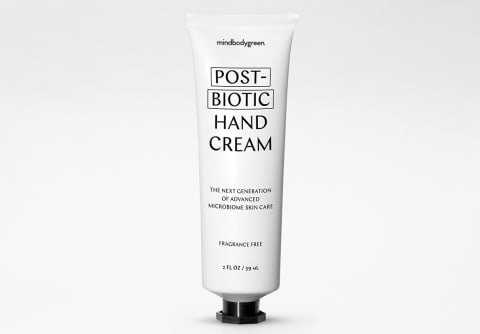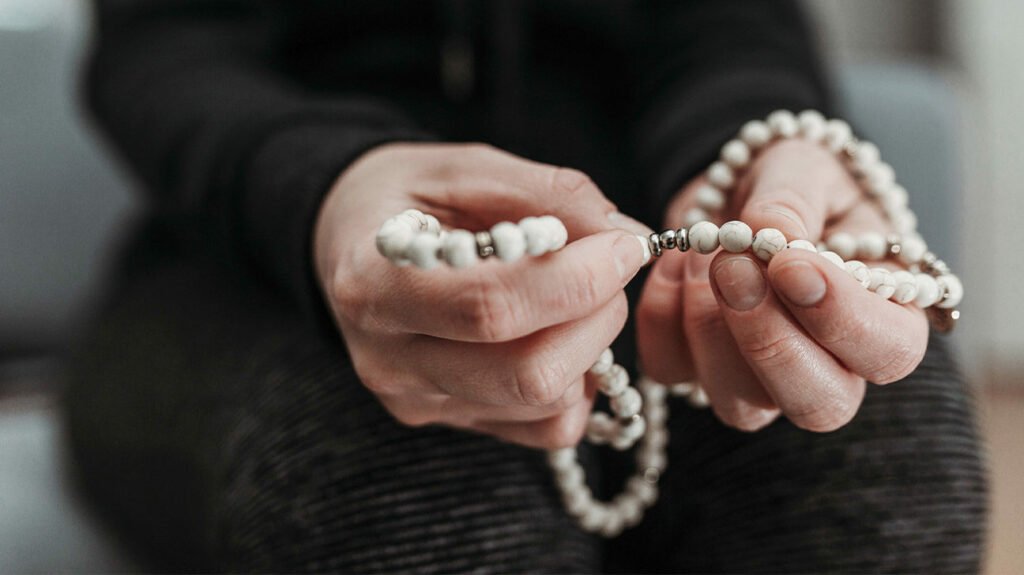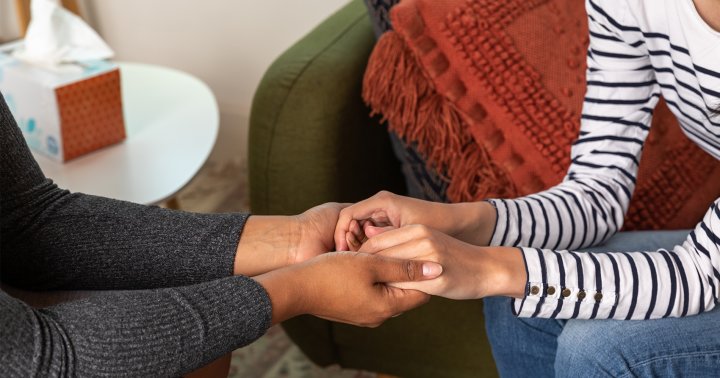Over 40? Never Miss This Spot When Doing Your Skin Care Routine
All in the hands.

Advertisement
This ad is displayed using third party content and we do not control its accessibility features.

Senior Beauty & Lifestyle Director
Senior Beauty & Lifestyle Director
Alexandra Engler is the senior beauty and lifestyle director at mindbodygreen and host of the beauty podcast Clean Beauty School. Previously, she's held beauty roles at Harper's Bazaar, Marie Claire, SELF, and Cosmopolitan; her byline has appeared in Esquire, Sports Illustrated, and Allure.com.
Image by Alba Vitta / Stocksy September 09, 2024 Taking care of your skin as you age can be about vanity—but it also can be about wanting to do what's good for your body. It can also come down to the mere fact that as we age, our skin goes through changes that need special attention. It's very common for people to experience increased sensitivities and dryness as the years go on, thanks to the fact that our skin loses structural proteins and lipids and sees a decrease in barrier function. This is true of the face, body, and, most notably—the hands. Yes, as you age you may notice your hands experience more chapped and flaky patches. Here's what's happening and what to do about it.
Why you should always pay special attention to the skin on your hands
Barrier function naturally decreases with time, because we see a decrease in many parts of the structural components of the skin.
For example, we lose lipids and humectants that make up the moisture barrier, such as ceramides, squalene, and hyaluronic acid—all of which experience production decreases with age. We also see a depletion in the antioxidants our skin creates naturally, like coenzyme Q10.
Additionally. the microbiome of the skin shifts with time (as it does throughout your life) thanks to things like hormonal changes, a decrease in sebum production, and some lifestyle factors.
Additionally, if you are going through menopause, you may see more dramatic changes. "As our hormones diminish in menopause, the functions they perform to maintain the health and vitality of the skin diminish as well, characterized by a decrease in sweat, sebum, and the immune functions resulting in significant alterations in the skin surface including pH, lipid composition, and sebum secretion," board-certified dermatologist Keira Barr, M.D., previously told us about menopause and skin. "These changes also provide potential alterations in the skin that may affect the skin microbiome."
But, like all skin care, not all formulas are created equal. In order to help your skin as it ages, you should be mindful of the ingredients you are using—and look for ones that not only feed your skin lipids but address the other areas of barrier function as well.
So, of course, you'll want to look for a cream with dense, rich oils and butters to keep your skin hydrated and conditioned. Shea butter and moringa seed oil are both sophisticated options that contain fatty acids and more to help bolster the barrier.
But then look for additional ingredients like targeted antioxidants to help improve your skin's free-radical-fighting abilities, lighten age spots, and reduce signs of premature aging. Vitamins C, E, niacinamide, and coenzyme Q10 are all potent and popular options that have significant research backing up their skin-healthy benefits.
Finally, you'll want to support your flora as you age since the changes in the biome can make your skin more sensitive: Pre- and postbiotic ingredients have been shown to help calm the skin, nurture the natural flora, and improve your skin's defense system.
That may sound like a tall order for a hand cream—but we've seen some pretty sophisticated formulas enter the market. Don't know where to start? Check out our all-time favorite hand creams here.
The takeaway
Your skin changes as you age, and you should adjust your skin care routine accordingly. One way you may notice this happening is in your hands. Since the skin on the hands is more susceptible to stressors, we recommend looking for hand creams that can improve your barrier function first and foremost.

 UsenB
UsenB 

































